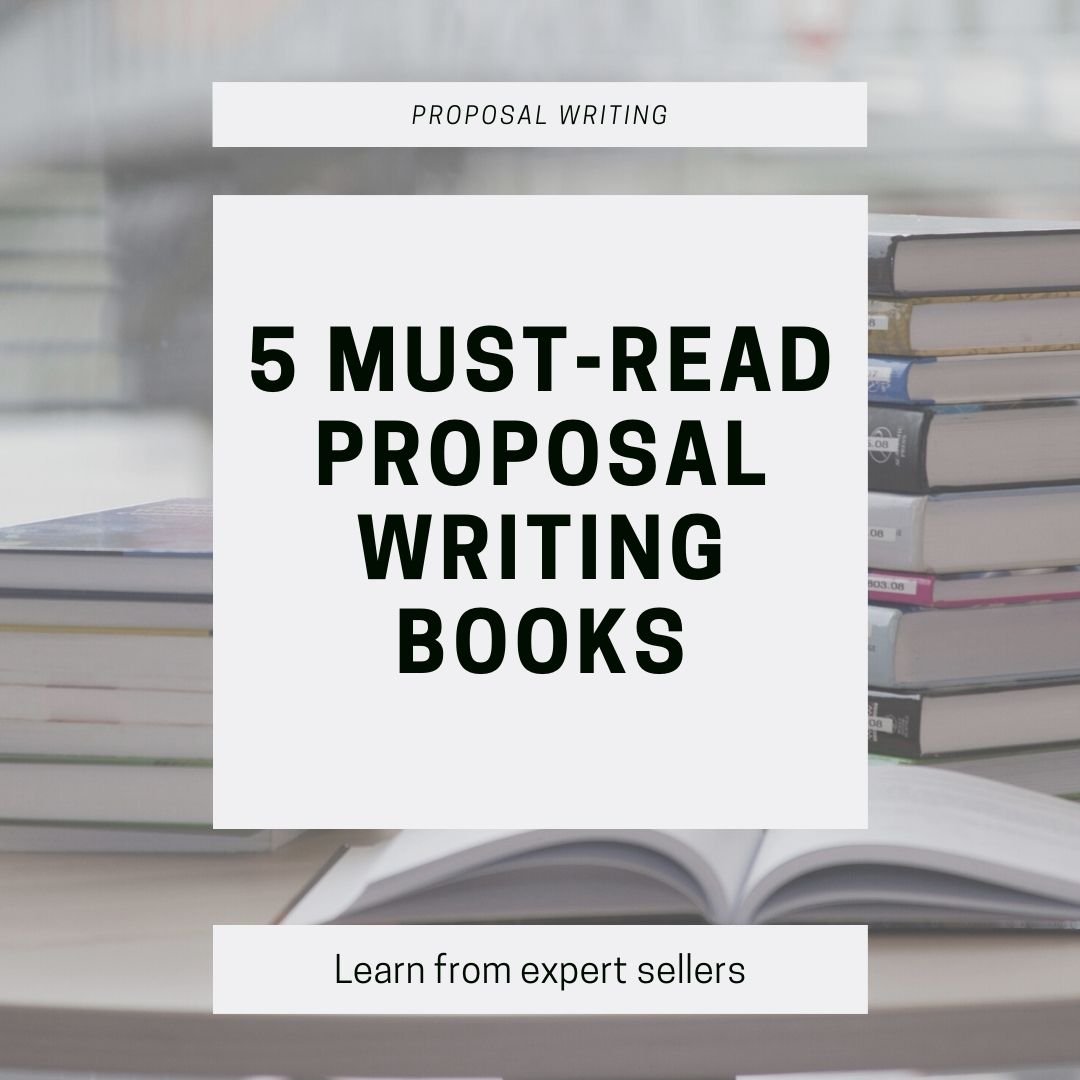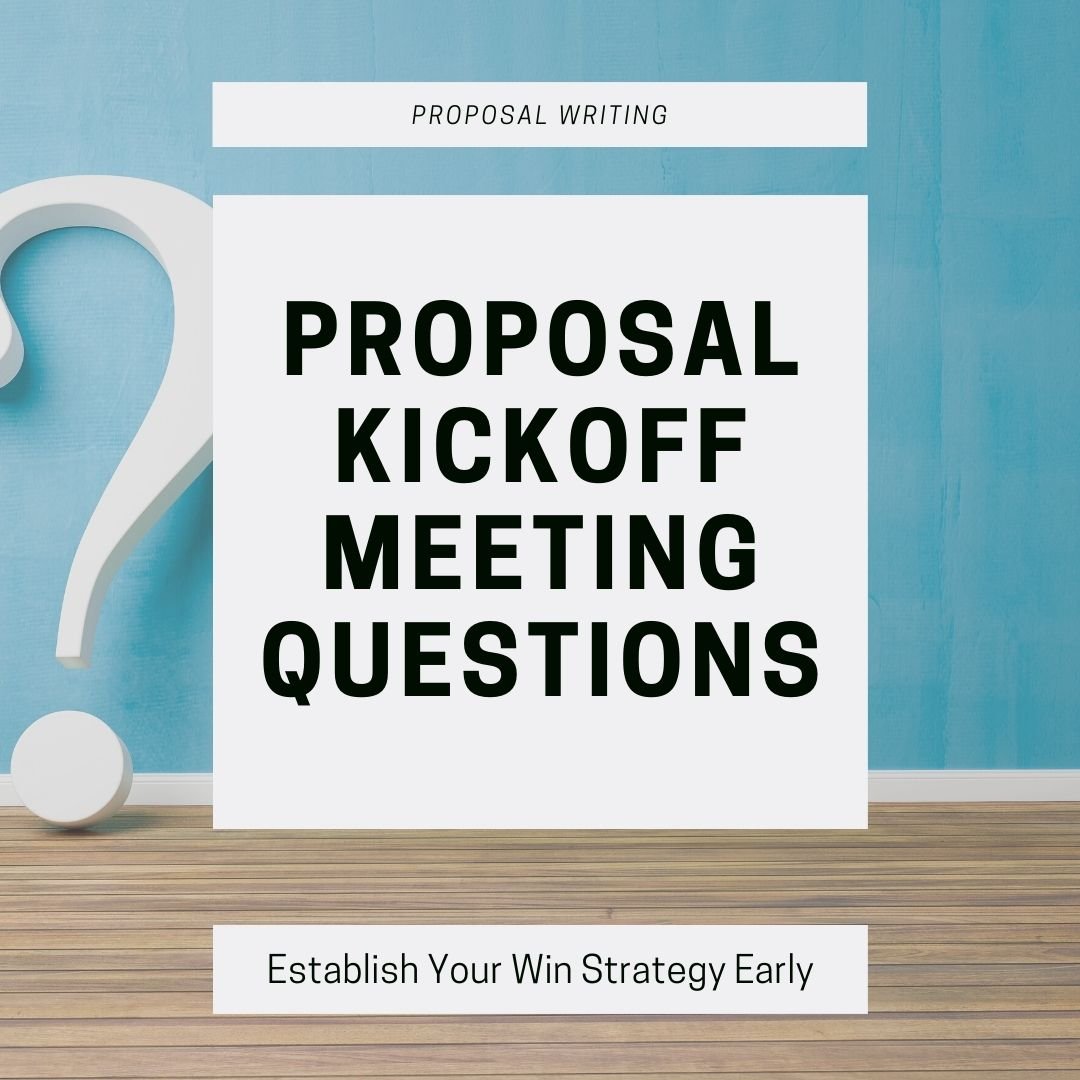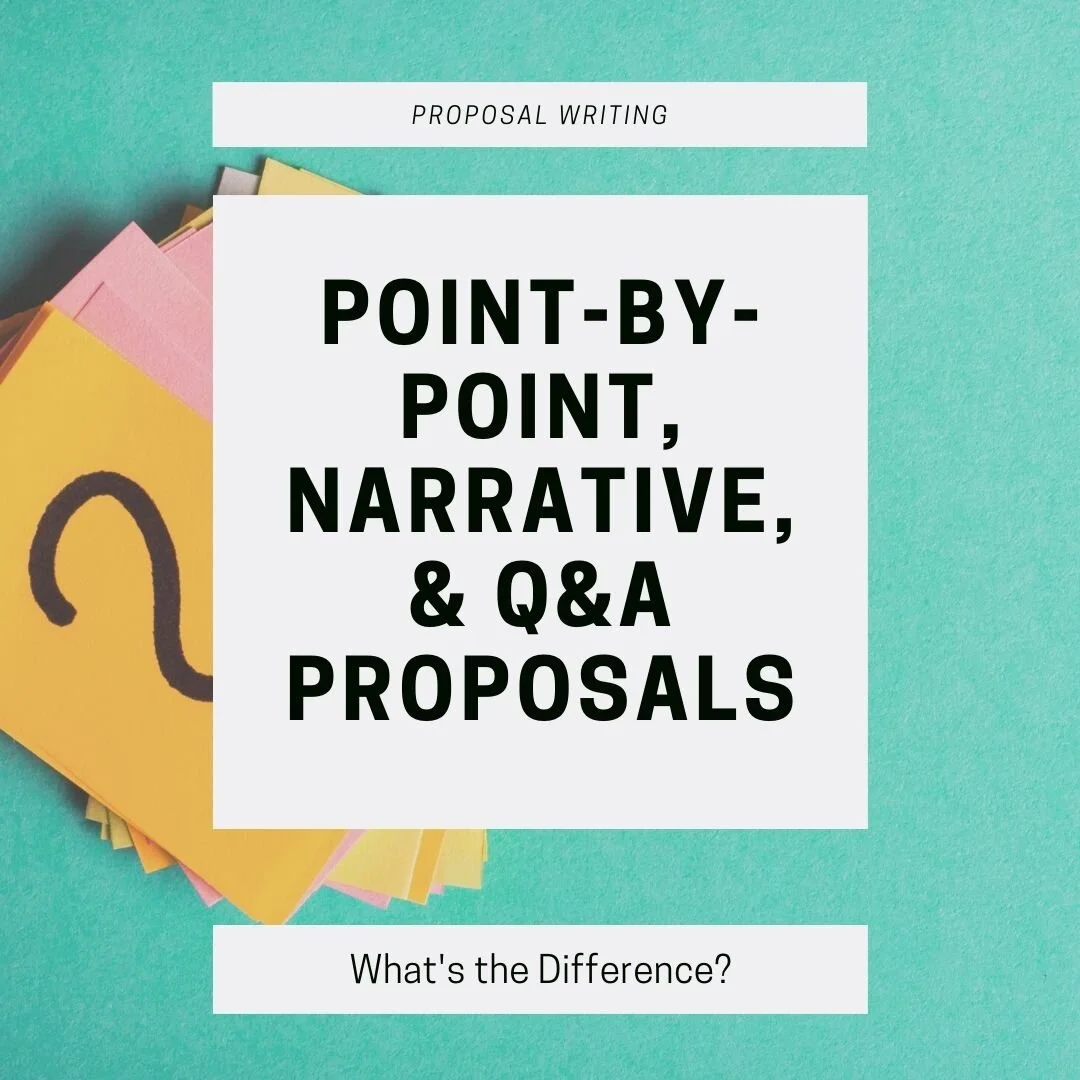Writing is a skill that requires constant work and improvement. Like any skill, sometimes you need a bit of outside help and guidance to continue to improve. There’s no better place to get help than a good book, and the resources on this list are the perfect place to get started. So if you’re ready to take your proposals to another level and curl up with a good writing book, read on!
Read MoreIt’s easy to have the proposal kickoff meeting to be focused only on assigning tasks and aligning on schedule. However, since this is often the one time where the whole team is available, it is the perfect opportunity to dive into your proposal strategy. Whether you use the kickoff call for establishing your strategy or you have a separate meeting, below are a few key questions to address to make sure you’re positioned to win.
Read MoreThere are three main approaches to creating proposals. The first one is to write from scratch every time, which can be time consuming, frustrating, and inefficient. The second approach is to copy and paste from past proposals. This is more efficient but leaves room for error and repeated mistakes. The last, and best option, is to use a content library to save time and avoid mistakes. Let’s take a look at how you can implement this in your business.
Read MoreWhether you respond to RFPs or not, a clear Go/No Go process is essential to ensuring you don’t spend too much time on proposals that aren’t likely to win. Figuring out how to make that decision is the hard part, however. To help make it easier, here are thirteen questions you can ask to help you decide if you should send out the proposal.
Read MoreIf you’ve done much reading about proposals, then you know you are significantly more likely to be successful if you build a relationship with the buyer before they release the RFP. While this may sound great in theory, you might wonder: how do you actually do that?
Read MoreThere are few things more frustrating than spending hours (or weeks!) on a proposal only to have the buyer go with someone else. Until it happens again. And again.
If you’ve found yourself in this position, then you’re likely wondering why this keeps happening. Let’s take a look at a few of the common reasons why the project might be awarded to someone else
Read MoreFor several years I have worked with clients on their proposals. Most have many strengths – such as a deep understanding of the customer, good design, strong competitive points, or a unique solution. However, there is one thing that I find myself saying more often than not.
Read MoreWinning RFPs can be life changing for a business. By their very nature, RFPs are large projects that require a lot of work and management – and they come with the associated cost. Winning an RFP takes an equal amount of work, and this blog post breaks down a few of the Dos and Don’ts of responding to RFPs.
Read MoreAn oft-overlooked (and sometimes completely absent) section of RFP responses is the cover letter. Including a cover letter in your proposal provides a personal touch, allows you to address any administrative components, and gives a special place to sell your offering. If you want to include a cover letter in your RFP response but are not sure where to get started, read on!
Read MoreIt only takes a few proposals for you to start wishing for more resources to make the process easier. Fortunately, there are plenty of tools that do just that. In this post, we cover a few of the most useful types of proposal resources to make your life easier.
Read MoreA well-designed proposal makes it easy for evaluators to better understand your offering and why they should choose you. Unless you’re a designer, however, knowing how to get started with designing your proposal can be overwhelming. The first decision is what tool you should use. For most organizations, that decision becomes choosing between Adobe InDesign and Microsoft Word. Read on to learn which one is the best option for you.
Read MoreWhether you’re just getting started with proposals or you’ve created hundreds, odds are, you’re going to need help at some point. What many organizations don’t consider, however, is the type of proposal support that is best suited for your process. Before you create a job posting for a proposal writer or hire a proposal management firm, review the below to see what would be the best fit for your organization.
Read MoreWhether you have dedicated proposal writers or your sales team submits proposals (or something in between), there are many factors that impact the success of your proposal team.
Read MoreWinning a new government contract can dramatically boost revenue for many small businesses. In order to win those contracts, however, you often have to go through the government procurement process, which means responding to RFPs. If you are struggling to determine if you’re ready to start responding to government RFPs, read on for a few key questions to ask to determine your next step.
Read MoreWhen you’re a small company bidding on a project, you sometimes find yourself up against the big players. It may seem hopeless when they have seemingly endless resources available to them, but many procurement teams look for ways to work with small businesses. There are ways to position your company to help you to win the larger projects even when a big company is competing against you.
Read MoreEveryone has a different approach to creating proposals. If you’ve heard the terms point-by-point, narrative, or question & answer but don’t know where to begin, then read on to learn more.
Read MoreResponding to RFPs takes a lot of time. Most large companies have teams of at least twenty people dedicated solely to responding to RFPs. Small businesses don’t have the luxury of these resources, and that means it’s important to vet out RFPs to ensure they are worth the time before you invest in creating the proposal.
Read MoreYou just received a new RFP, and as you scroll through the document, you check all of the boxes. Qualified team? Yes. Compelling solution? Check. Share your financial statements? Wait..
More and more RFPs are asking potential bidders to share their financial statements as part of the proposal.
Read MoreWhen people think of proposals, a lot of focus is on the content. While that is an essential part of creating your proposal, an often overlooked section is your proposal design. Many small businesses don’t have a professional designer on staff, so the design often falls to the seller or business owner to create the design. If this is you, never fear! It is possible to create a branded, well designed proposal even if all you have is a company logo.
Read MoreWhether you’ve been invited to respond to an RFP or you found the posting online, coming across an RFP for a project that aligns with your business goals is an enticing prospect. RFPs are typically for large projects, and those large projects mean more revenue and often a better bottom line. While the opportunity might be tempting, there’s often just one thing standing in the way: how do you actually create a winning RFP response?
Read More



















